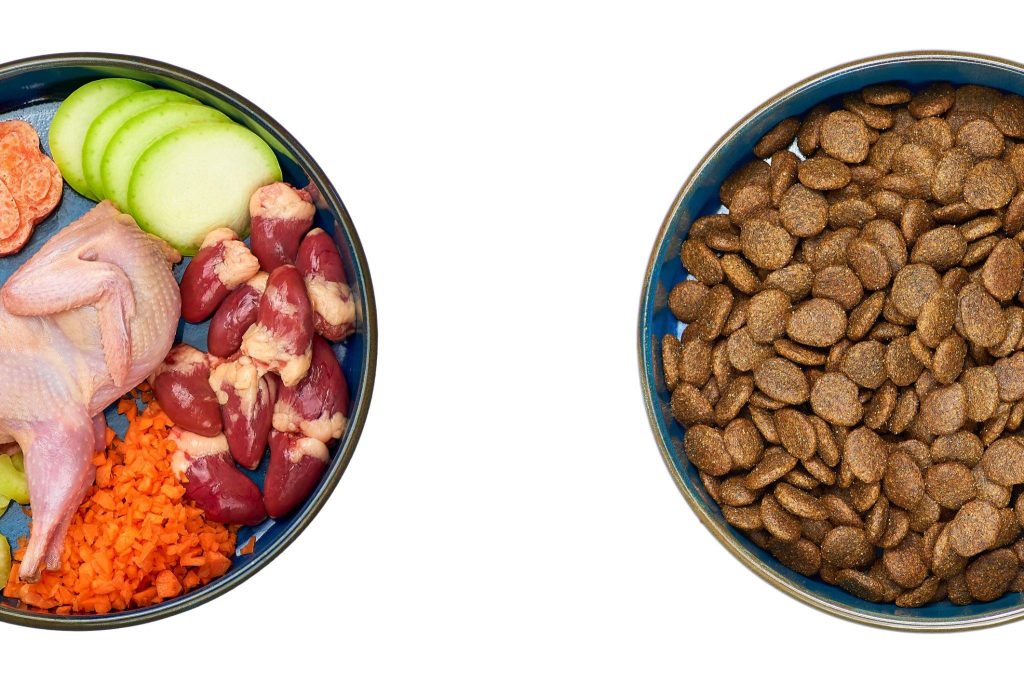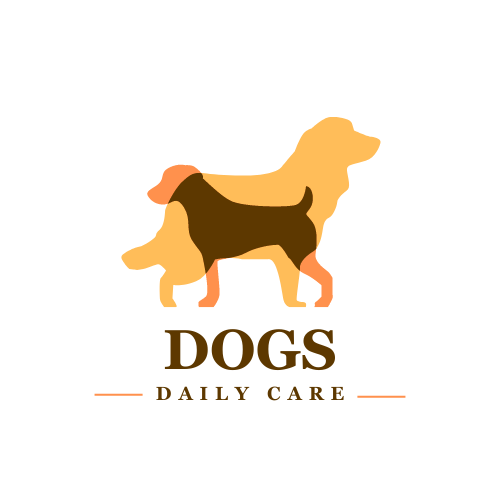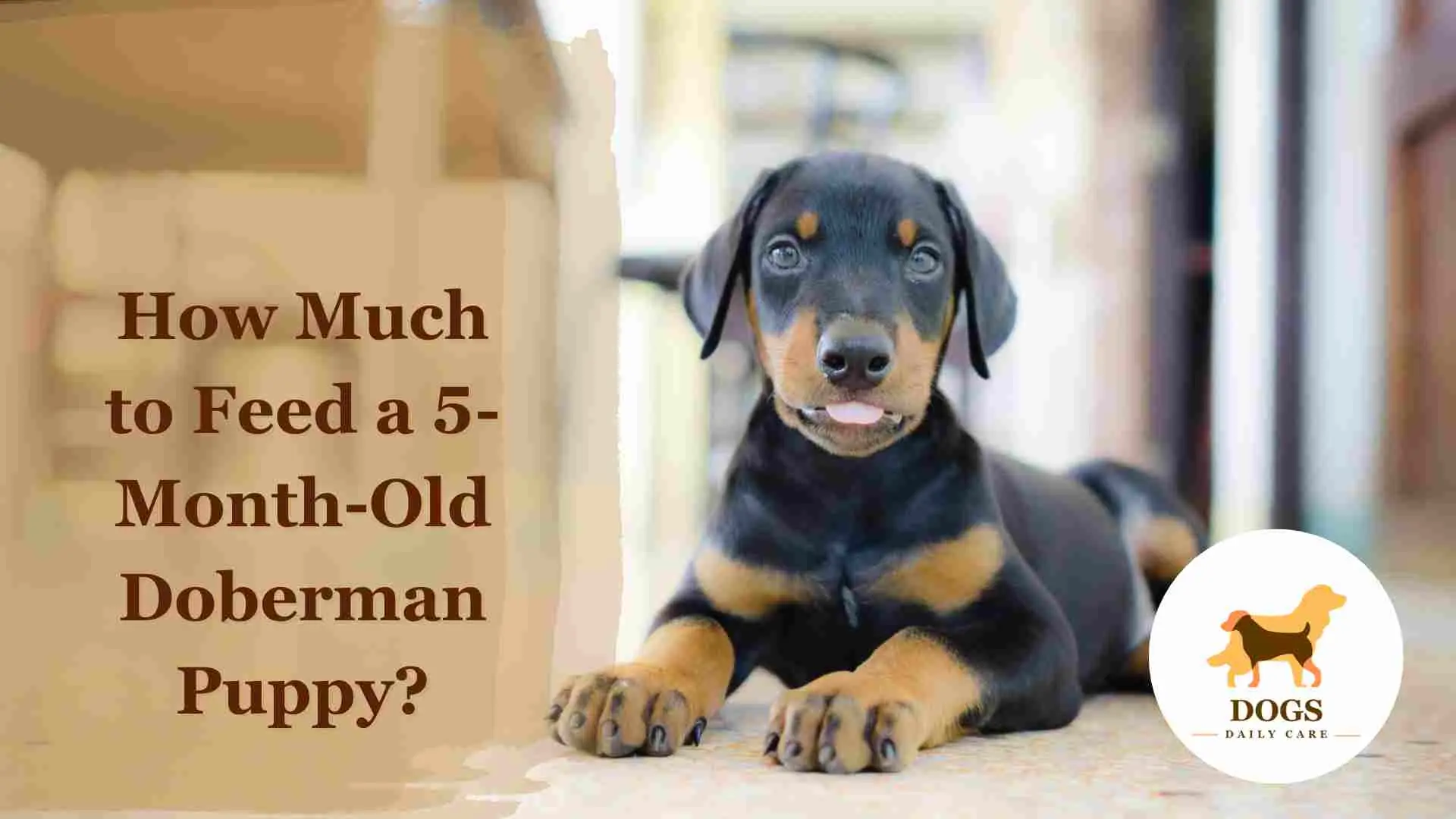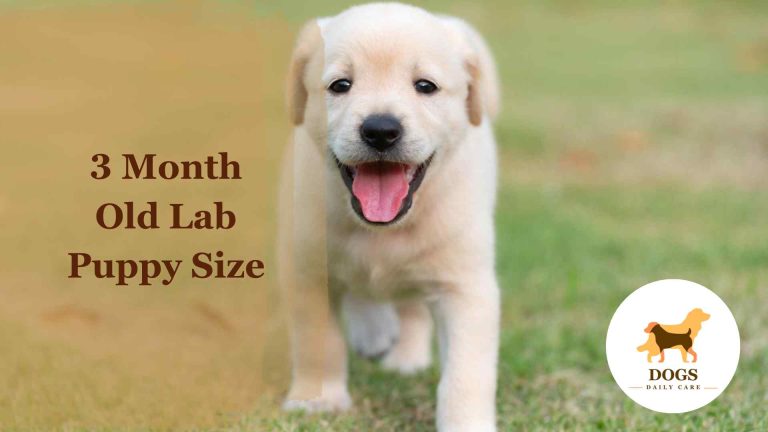How Much to Feed a 5-Month-Old Doberman Puppy? – An Ultimate Guide
Every pet owner wants the best for their furry friend, especially during those vital growing months. For Doberman puppies, particularly those around 5 months old, getting the right nutrition is crucial. As this breed is known for its rapid growth and energetic nature, supplying them with the correct amount and type of food will set them up for a future of robust health and vitality.
At 5 months, a Doberman puppy is transitioning from the rapid growth of its early months to a more steady, yet still fast-paced development. Their muscles are building, bones are strengthening, and their playful energy seems almost endless. Ensuring they have a balanced diet during this period not only supports their physical development but also their cognitive and behavioral growth.
Whether you’re a new Doberman parent or a seasoned dog lover, understanding the intricacies of puppy nutrition can be a bit daunting. But fear not! This comprehensive guide will unravel the mystery behind feeding a 5-month-old Doberman, ensuring you have all the knowledge to keep that tail wagging and those paws running.
Understanding the Doberman Breed
The Doberman is more than just its sleek coat and majestic stance. Originating from Germany, this breed is known for its intelligence, loyalty, and alertness. They’re not just beautiful; they’re brains and brawn combined.
Adult Dobermans stand tall, often between 24 to 28 inches at the shoulder. They’re packed with energy and have a protective nature. For new Doberman parents, understanding this temperament is key. Their loyalty means they bond deeply with their families, and their alertness can make them excellent watchdogs.
Dobermans, like all breeds, have specific health needs. They can be prone to certain conditions like hip dysplasia and cardiomyopathy. Knowing these potential issues from the start helps in providing the best care and nutrition for their well-being.
Factors Influencing Puppy’s Diet
1. Activity Level
Just like us, pups with higher energy need more food. Your Doberman’s playfulness isn’t just adorable; it’s also a sign of their calorie needs. If your puppy loves running in the yard or playing fetch non-stop, it might need a bit more fuel than a more laid-back pup.
2. Health and Growth
Each Doberman grows at its own pace. Some might sprout up quickly, while others take their time. It’s essential to watch for signs of healthy growth like a shiny coat, bright eyes, and sturdy legs. If your pup seems underweight or too chubby, adjusting their food can help.
3. Existing Diet
Not all foods are made equal. Maybe you’re giving your Doberman puppy high-quality kibble, or perhaps you prefer home-cooked meals. The type and quality of their current food play a big role in determining how much they should eat.
Commercial Dog Food vs. Homemade Meals

1. Store-Bought Solutions
Commercial dog foods come packed with nutrients. Brands often cater to specific breeds, ages, and sizes, making it easy for Doberman parents. Plus, it’s quick and convenient. But remember, always choose high-quality brands, and look for real meat as the main ingredient.
2. Homemade Happiness
There’s something special about cooking for your pup. With homemade meals, you know exactly what’s going in. Fresh meats, veggies, and grains can offer a balanced diet. But, it’s vital to do your research. Missing out on essential nutrients can be a concern.
3. The Best of Both Worlds
Why not mix things up? Some Doberman owners combine commercial and homemade meals. This way, their pups get varied tastes and well-rounded nutrition. Just ensure the portions make sense, and your pup’s not overeating.
Recommended Portion Sizes for a 5-Month-Old Doberman
1. Kibble Crunch
If dry food is your pick, portion size matters. For a growing 5-month-old Doberman, anywhere from 2 to 3 cups daily might be the norm. However, always check the bag’s guidelines. Brands can differ, and so can their recommendations.
2. Wet Food Wonder
Wet food is a tasty treat for many pups. For our Doberman youngsters, around 1 to 1.5 cans daily could be right. Again, brand variations exist. It’s a good habit to peek at those feeding instructions.
3. Raw Diet Delight
Going the raw route? It’s all about weight percentages. Typically, 2-3% of the pup’s body weight daily is a starting point. So, if your Doberman weighs 40 pounds, that’s around 0.8 to 1.2 pounds of raw food each day.
4. Watch the Waistline
Regardless of food type, always monitor your Doberman’s shape and weight. Puppies grow fast, and their needs change. Adjust portions if they seem too thin or a tad too plump.
Essential Nutrients for Growing Dobermans
1. Protein Power
Every Doberman pup needs protein. It’s their muscle’s best friend. Think of it as the building block for those strong legs and robust body. Whether from chicken, beef, or fish, make sure protein tops the food list.
2. Fabulous Fats
Don’t shy away from fats! They give your Doberman that shiny coat and spark of energy. Omega-3 and Omega-6 are especially good. They’re not just for humans; they keep puppies glowing and going too.
3. Bone-Boosting Minerals
Calcium and phosphorus play a starring role. These minerals are the secret behind sturdy bones and strong teeth. But balance is key. Too much or too little can be tricky for a growing Doberman.
4. Vital Vitamins
Vitamins like A, D, and E are puppy essentials. They support everything from vision to skin health. Think of them as little health boosters, sprinkled through your pup’s meals.
Potential Allergens and Foods to Avoid
1. Allergen Alerts
Just like humans, Dobermans can be allergic. Common culprits? Foods like soy, corn, and sometimes even chicken. If your pup’s itching, losing fur, or getting upset tummies often, an allergen might be the cause.
2. Toxic Troubles
Some foods are a no-go for all dogs, including Dobermans. Chocolate, grapes, onions, and garlic top the list. They might be yummy for us, but they’re harmful to our four-legged friends.
3. Beware of Bones
It’s tempting to give your Doberman a bone. But be careful! Small, splintery bones can choke or harm their insides. If you must, pick large, uncooked bones and always keep an eye on playtime.
4. Xylitol X-ing
This sweetener, found in some candies and gums, is super toxic for dogs. Even tiny amounts can cause big problems. Always check food labels and keep sweets out of paw’s reach.
Monitoring and Adjusting Your Puppy’s Diet
1. Vet Visits
Regular check-ups are a must. Your vet will weigh your Doberman, ensuring they’re on the right growth track. If there’s a weight worry or nutrition need, they’ll guide you.
2. Growth Glimpses
Keep an eye on your pup’s shape. A slightly visible waist and ribs you can feel (but not see) are good signs. If your Doberman seems too skinny or too pudgy, it might be time for a food fix.
3. Tummy Troubles
Diarrhea? Constipation? These can hint at diet dilemmas. Maybe it’s too much fat or a food that doesn’t fit. Watching poop patterns can tell you a lot!
4. Appetite Awareness
Is your Doberman gobbling food up or leaving leftovers? Changes in appetite can signal health issues or hint that you’re overfeeding or underfeeding.
Frequently Asked Questions (FAQs)
1. How often should I feed my 5-month-old Doberman?
Most Doberman owners split meals into two or three times a day. It helps manage hunger and ensures a steady energy supply for your active pup.
2. Can I switch between commercial and homemade meals abruptly?
It’s best to transition slowly. Start by mixing the new food with the old in increasing amounts over a week. Abrupt changes can upset your Doberman’s tummy.
3. My Doberman seems always hungry. Is this normal?
Puppies have big appetites due to their rapid growth. However, always ensure they’re not overeating. If you’re unsure, a vet’s opinion can bring peace of mind.
4. Are there any specific supplements my Doberman puppy needs?
While a balanced diet should cover most bases, some Dobermans might benefit from joint supplements or fish oils. Consult with your vet for personalized advice.
5. How do I know if my puppy is allergic to certain foods?
Allergies can manifest as itching, redness, fur loss, or digestive issues. If you suspect an allergy, consult your vet. They might recommend an elimination diet to pinpoint the culprit.
Conclusion
Navigating the world of puppy nutrition, especially for a robust breed like the Doberman, can initially seem daunting. But with the right knowledge and a sprinkle of patience, you can ensure your young Doberman thrives. Remember to prioritize high-quality ingredients, monitor their growth and health, and always keep an open line of communication with your vet. These simple steps will pave the way for many happy, healthy years ahead for your furry friend.
As your Doberman puppy grows, their needs might change. It’s essential to stay informed and adapt as necessary. With the right balance of nutrition, love, and care, you’re not just feeding a dog; you’re nurturing a lifelong bond.







